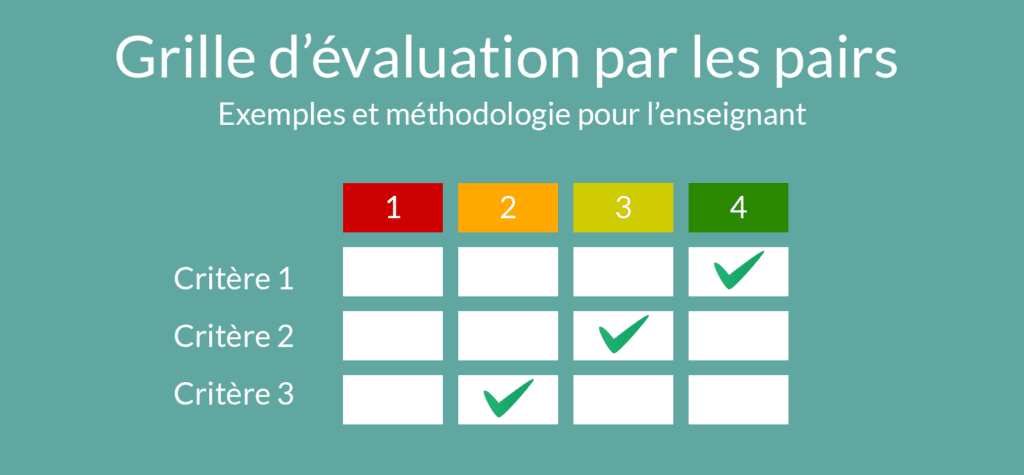Developing students' critical faculties through peer assessment

In an increasingly complex and rapidly changing world (for example, with the emergence of AI), the ability to think critically has become an essential skill. It enables us not only to understand and analyze information, but also to make informed decisions, solve problems and develop a [...]
How do you create a Criteria Grid relevant to peer review?

Peer evaluation has become an essential pedagogical tool in the world of education and vocational training. However, the success of this method depends largely on the quality of the criteria used to judge participants' work. How, then, can we create an effective criteria grid that promotes meaningful learning while being [...]
Peer assessment and soft skills: a synergy for success
In an ever-changing world, education can no longer be satisfied with imparting only technical knowledge or "hard skills". Today, behavioral competencies, also known as "soft skills", have taken on a predominant role, not only in academia, but also in the job market. These skills, which encompass communication, interpersonal [...]
The role of AI in peer review: an in-depth exploration
Today's technological age has pushed back the frontiers of education, offering innovative methods of learning and assessment. One of these methods, peer assessment, has long been valued for its potential to encourage collaboration, critical thinking and self-awareness in students. But with the advent of intelligence, the [...]
Helping students give feedback
Why is this important? As a teacher, you have an important role to play in your students' learning and professional development. By teaching them how to give relevant feedback, you provide them with a valuable tool that will enable them to progress and develop throughout their careers. Feedback [...]
The STAR method for giving feedback

Learn how to give feedback You'll need to give feedback regularly in your career, to your manager, to a customer, to a supplier, to members of your team or even to your colleagues. So it's important to be prepared! What are the reasons for giving feedback? Here are a few examples: to enable [...]
FAQ peer review

How many assessments should a student take? It all depends on the type of work to be assessed and how much time you want students to spend on it. After a certain number of assignments, students are no longer motivated to give quality feedback. We recommend between 3 and [...]
Peer review guide

Definition For us, peer assessment is a broad term for a range of activities that include students in the act of evaluating and providing feedback on the work of their peers. It can be formative, where students give feedback on each other's work before a final product [...].
Peer evaluation grid: examples and methodology for the teacher.

Peer evaluation has many advantages, including actively involving learners in the evaluation process and developing their analytical and feedback skills. To achieve this objective, it is important to have a peer evaluation grid that meets several conditions. The aim of this article is to explain the role of the [...]
Tip sheet: Feedback

Why feedback is important The word feedback comes from: Feed Back. It's a way of giving someone relevant information about their work, with the aim of improving it. Feedback is one of the fundamentals of communication! Each and every one of us needs it to advance and progress. It develops soft skills and [...]
